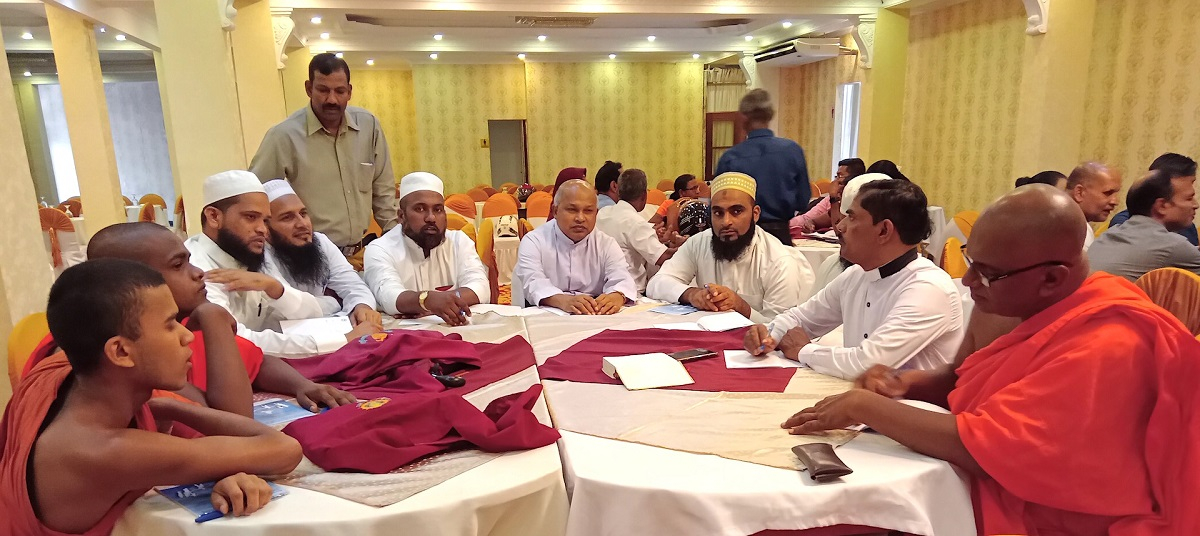Strengthening DIRCs through developing their strategic and communications plans was the focus for meetings held in Hambantota, Kurunegala, Kegalle, Kandy, Puttalam, Galle, Matara, Ratnapura, Badulla, Nuwara Eliya, Vavuniya, Anuradhapura, Polonnaruwa, Batticaloa, Jaffna and Monaragala under NPC’s Plural Action for Conflict Transformation (PACT) project. “As a manager for Sanasa, I have received training on preparing strategic plans but today I was able to get a clear understanding of the process. I think we can follow this method for any activity we do.
We can follow different strategies to achieve the goal of our DIRC. We are doing a lot of work as an inter religious committee but we are not identifying our resources and using them strategically. This will be helpful to bring more success to Kurunegala DIRC and I will try to do it for my institution too,” said a participant.
The sessions have shown that by conducting sessions on analysis, understanding the importance of doing Strengths, Weaknesses, Opportunities and Threats (SWOT) and strategy planning, DIRCs are given crucial support to achieve more success on their paths to peace. DIRCs identified themselves as a strength. They see themselves as a diverse group with different types knowledge and skills for promoting peace and reconciliation. They network with different organizations, institutions and people. They possess the ability to mobilise different groups for common causes and the commitment towards for peace building and social harmony.
Some of the identified opportunities were social recognition of the DIRC, having government officials on different levels who extend support to DIRC’s work and having community based organizations in the districts as well as having youth, adults, women and religious leaders with knowledge on human rights and peace related subjects.
The PACT project complemented the learnings sessions with progress review meetings for 13 DIRC coordinators, five officers from partner organizations and 17 DIRC members. While planning the way forward, it is also essential to remain up to date on current issues such as the political and economic situation in the country, which impact and explain behavioural changes of social actors. They also help the implementation team gather ideas for the next phase of the project.

